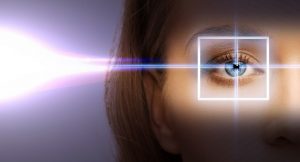 Myopia, or nearsightedness, is a common vision condition where one has difficulty seeing things far away. With the increase in usage of digital devices in our youth, myopia has become so common that it is reaching epidemic proportions in certain parts of the world. The National Eye Institute states that 39 million Americans will be affected by myopia by 2020.
Myopia, or nearsightedness, is a common vision condition where one has difficulty seeing things far away. With the increase in usage of digital devices in our youth, myopia has become so common that it is reaching epidemic proportions in certain parts of the world. The National Eye Institute states that 39 million Americans will be affected by myopia by 2020.
Myopia occurs when the eye grows too long for its optical power and results from a combination of genetic and environmental factors. Higher levels of myopia are associated with vision-threatening complications such as glaucoma, cataracts, and retinal detachment later in life. Drs. Wang and Lee are highly trained and skilled in fitting specialty contact lenses for myopia control and will provide a customized approach to determining the best option for your child depending on his or her lifestyle. Our practice prescribes orthokeratology or soft multifocal contact lenses as our main treatment options.
If you have noticed your child squinting or moving closer to objects in order to see, he or she may be a great candidate for myopia control.
Orthokeratology (ortho-k)
Ortho-k contact lenses are custom-designed rigid gas permeable contact lenses that are FDA-approved to be worn to sleep and removed upon awakening. These lenses gently reshape the front of the eye overnight in order to provide clear vision during the day. Ortho-k lenses have been proven to slow down the progression of nearsightedness.
Ortho-k lenses not only provide an excellent option for myopia control but also for patients who are not candidates for refractive surgery or for those who want to be free from glasses during the day.
Soft Contact Lens
Soft Contact Lenses with innovative technology to slow down the progression of myopia is a comfortable alternative for students. These lenses are worn during the daytime just like a standard soft contact lens and allow for clear vision at all distances while the lens is worn. Its innovative technology helps to slow down any worsening of nearsightedness.
Atropine Eye Drops
Eyedrops that are custom compounded by a pharmacy can also be used to decrease myopia progression and are used once daily before bedtime. This is a good option for those that are not ready for contact lenses and would prefer to continue to wear glasses. In some cases, if the child’s prescription continues to worsen rapidly over time, we may choose to combine two different treatments such as orthokeratology with atropine eye drops.
With all of the options above, our doctors will monitor the prescription routinely (every 3-6 months) to measure the effectiveness of the treatment and to make changes if needed.
